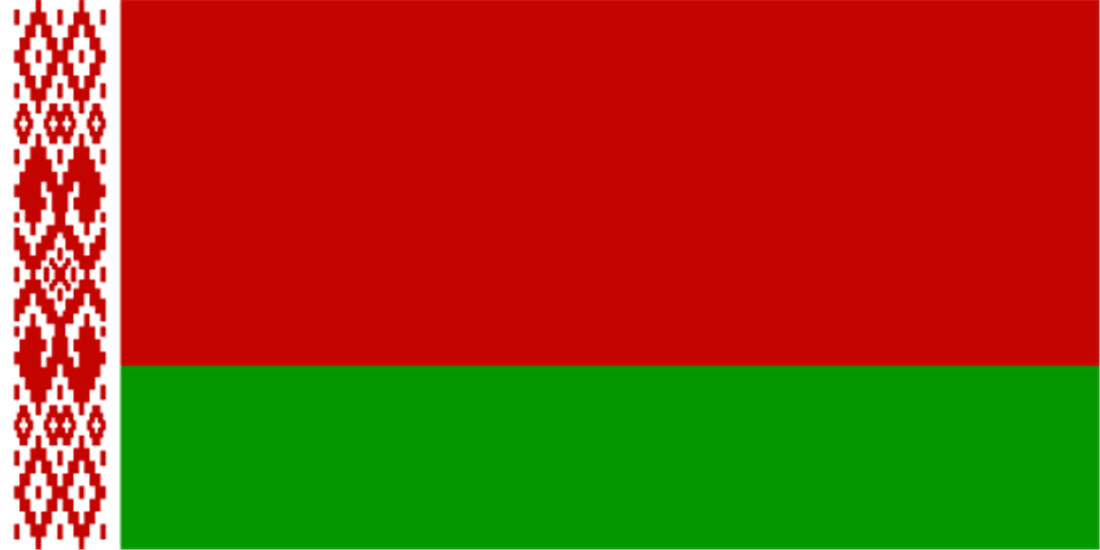Belarus is a landlocked country in Eastern Europe bordered by Russia to the northeast, Ukraine to the south, Poland to the west, and Lithuania and Latvia to the northwest. Its capital is Minsk; other major cities include Brest, Hrodna (Grodno), Homiel (Gomel), Mahilyow (Mogilev)and Vitsebsk (Vitebsk). Over forty percent of its 207,600 square kilometres (80,200 sq mi) is forested, and its strongest economic sectors are service industries and manufacturing.
Until the 20th century, the lands of modern-day Belarus belonged to several countries, including the Principality of Polotsk, the Grand Duchy of Lithuania, thePolish–Lithuanian Commonwealth, and the Russian Empire. In the aftermath of the Russian Revolution, Belarus became a founding constituent republic of the Soviet Union and was renamed as the Byelorussian Soviet Socialist Republic (BSSR).
Much of the borders of Belarus took their modern shape in 1939 when some lands of the Second Polish Republic were incorporated into it after the Soviet invasion of Poland and were finalized after World War II. The nation and its territory were devastated in World War II, during which Belarus lost about a third of its population and more than half of its economic resources.[10] The republic was redeveloped in the post-war years. In 1945, the Belorussian SSR became a founding member of the United Nations, along with the Soviet Union and the Ukrainian SSR.
The parliament of the republic declared the sovereignty of Belarus on 27 July 1990, and during the dissolution of the Soviet Union, Belarus declared independence on 25 August 1991. Alexander Lukashenko has been the country's president since 1994. Despite objections from Western governments, Lukashenko has continued Soviet-era policies, such as state ownership of the economy. According to some organizations and countries, elections have been unfair, and political opponents have been violently suppressed. In 2000, Belarus and Russia signed a treaty for greater cooperation, with some hints of forming a Union State.
 Despite its proximity to the rest of Europe and the West, Belarus' Democracy Index rating continuously ranks the lowest in Europe, and the country is labelled as "Not Free" by Freedom House and "Repressed" in the Index of Economic Freedom. For this reason, the country is often referred to as the 'Last Dictatorship in Europe'.
Despite its proximity to the rest of Europe and the West, Belarus' Democracy Index rating continuously ranks the lowest in Europe, and the country is labelled as "Not Free" by Freedom House and "Repressed" in the Index of Economic Freedom. For this reason, the country is often referred to as the 'Last Dictatorship in Europe'.
 Over 70% of Belarus's population of 9.49 million resides in urban areas. More than 80% of the population is ethnic Belarusian, with sizable minorities of Russians, Poles and Ukrainians. Since a referendum in 1995, the country has had two official languages: Belarusian and Russian. The Constitution of Belarusdoes not declare an official religion, although the primary religion in the country is Eastern Orthodox Christianity. The second most popular, Roman Catholicism, has a much smaller following, although both Orthodox and Catholic versions of Christmas and Easter are celebrated as national holidays.
Over 70% of Belarus's population of 9.49 million resides in urban areas. More than 80% of the population is ethnic Belarusian, with sizable minorities of Russians, Poles and Ukrainians. Since a referendum in 1995, the country has had two official languages: Belarusian and Russian. The Constitution of Belarusdoes not declare an official religion, although the primary religion in the country is Eastern Orthodox Christianity. The second most popular, Roman Catholicism, has a much smaller following, although both Orthodox and Catholic versions of Christmas and Easter are celebrated as national holidays.
Recibe las novedades en tu correo
